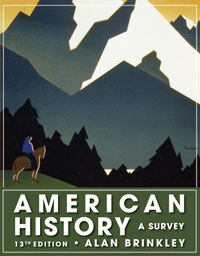1 A) pardon of Richard Nixon. B) handling of the "Mayaguez" incident. C) vetoes of large numbers of congressional enactments. D) appointment of Nelson Rockefeller as vice president. E) policies on the economic problems. 2 A) the SALT II agreement B) the Helsinki agreement on European boundaries C) the continued rapprochement with China after the death of Mao Zedong D) the abandonment of U.S. mediation efforts in the Middle East E) a new accord between Israel and Egypt 3 A) Ford refused to choose a running mate who appealed to the Republican Right. B) Carter's considerable service in Washington assured voters of an experienced administrator. C) Ford's acerbic personality had generated an atmosphere of bitterness and acrimony in Washington. D) the country was still angry over Ford's pardon of Nixon. E) Carter seemed to possess honesty, piety, and an outsider's skepticism of the federal government. 4 A) modest inflation and stable interest rates B) modest inflation and declining interest rates C) rapid inflation and record high interest rates D) rapid inflation and stable interest rates E) rapid inflation and declining interest rates 5 A) flexible military response whenever democratic governments were challenged. B) expansion of American economic interests overseas. C) reduction of American responsibility for involvement in world conflicts. D) the issue of how nations respect human rights. E) reduction of American military presence around the world. 6 A) Egypt. B) Libya. C) Lebanon. D) the Palestine Liberation Organization. E) Syria. 7 A) abandoning SALT II as futile B) completing negotiations to transfer the canal zone to Panama C) using diplomatic pressure to promote human rights in other countries D) continuing progress toward improving relations with China E) negotiating a peace treaty between Israel and Egypt 8 A) began to support Iraq in its war with Iran. B) refused to recognize Iran's new regime. C) attempted to restore the pro-American Shah to power in Iran. D) allowed the exiled former Shah of Iran to enter the United States. E) halted any peace negotiations with Arab nations. 9 A) conservative, antigovernment B) liberal, government activist C) moderate, middle-of-the-road D) basically neutral E) liberal, antigovernment 10 A) belief in the joining of church and state B) conservative, right-wing politics, especially on social welfare issues C) belief in the literal, inerrant interpretation of the Bible, especially on evolution D) belief in a liberal, loose interpretation of the Bible, especially on abortion E) belief in personal conversion through direct communication with God 11 A) was used by conservatives as a means of reversing the growth of the federal government. B) was a less effective strategy than attacking government programs directly. C) had its public beginnings in the Sunbelt. D) began after Reagan took office. E) was led by Pat Robertson. 12 A) neo-conservatives B) New Right C) feminists and civil-rights activists D) conservative business leaders E) evangelical Christians 13 A) retained little control of most of the day-to-day operations of the federal government. B) struggled to convey his message to the American people. C) used a highly nationalist rhetoric to gain support for his proposals. D) was one of the youngest men ever to serve as president. E) struggled to free the hostages in Iran. 14 A) increasing government spending to stimulate consumption. B) maintaining high interest rates to control inflation. C) cutting taxes to encourage new investment. D) raising taxes to stimulate the economy. E) lowering interest rates to encourage spending. 15 A) experienced severe deficits. B) noticeably declined. C) shifted from reliance on the income tax to a national sales tax. D) rose markedly in domestic spending but remained flat on defense. E) experienced a brief deficit. 16 A) raised income taxes. B) cut defense spending. C) cut the budgets for "discretionary" domestic programs. D) raised interest rates. E) raised income taxes and interest rates. 17 A) maintained a strictly neutral position. B) sent in a peacekeeping force of American combat troops. C) supported the existing military regime with money and material. D) supported the revolutionaries, who were seeking to overthrow the military regime. E) encouraged the United Nations to take a more active role in safeguarding civilians. 18 A) pro-American forces. B) anti-American forces. C) essentially the same as the Contras in Honduras. D) supporters of the former Somoza regime. E) anti-communist forces. 19 A) supporting Lebanon with military aid for its border conflict with Saudi Arabia. B) supporting Lebanon to gain back territories lost to Israel. C) backing Israel in the United Nations in its effort to make Lebanon part of the Left Bank area controlled by Israel. D) backing Israel financially so the country could arm itself. E) sending in American marines as a peacekeeping force following Israeli-PLO clashes but removing them after over 200 were killed in a terrorist attack. 20 A) Jewish. B) female. C) African American. D) Hispanic. E) Latino. 21 A) President Reagan won re-election in a close contest with Walter Mondale. B) President Reagan won 49 out of 50 states. C) President Reagan led the Republican Party in a successful effort to regain control of both houses of Congress. D) President Reagan won the first presidential election of the post-Cold War era. E) President Reagan did not win the popular vote. 22 A) the Gulf War B) the 1990 recession C) the Beirut bombings D) Tiananmen Square E) the fall of the Berlin wall





